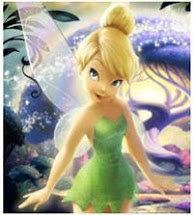Pages: 296, reprint: 384
(Release date: July 11, 1960)
From the Cover:
"When he was nearly thirteen, my brother Jem got his arm badly broken at the elbow.... When enough years had gone by to enable us to look back on them, we sometimes discussed the events leading to his accident. I maintain that the Ewells started it all, but Jem, who was four years my senior, said it started long before that. He said it began the summer Dill came to us, when Dill first gave us the idea of making Boo Radley come out."
Scout (Jean Louise) Finch is a precocious almost six year old when our story starts, it was that summer that Dill came to stay with their neighbor and his aunt, Rachel Haverford, 1933. Now, Scout wasn't your typical girl, but these were not typical times. The Great Depression had Maycomb, Alabama held tightly in it's grip. Scout's mother had died when Scout was only two, but she's a distant memory, and now Calpurnia, their maid has taken her place, making sure Scout takes her bath or at least washes, and to remind them all to eat, have good manners, treat others kindly.
Jem Finch is almost ten the year Dill comes to stay for the summer, and it's Dill who stirs up thoughts of Arthur "Boo" Radley, they share the stories they've heard, sneak by the Radley Place, and dares Jem to touch the house where Boo lives. No one has seen Boo in fifteen years, not since he stabbed his father with a pair of scissors. Now, since the passing of his father, Boo's brother Nathan takes care of him.
Dill, Charles Baker Harris, is a fatherless boy from Meridian, Alabama, sent to stay with his aunt for the summer. Scout and Jem, having been raised to accept others at the word, take to Dill and his orneriness and odd stories; and he becomes their companion and friend for the summer.
Atticus Finch, Jem and Scout's father, is a good man, well respected in their community, and the first Finch to leave the family farm, Finch's Landing. Atticus choose to become a lawyer, his brother, Jack, a doctor, and his sister, Alexandra stayed on the farm. He makes a good living as a lawyer, even with the Great Depression.
As the years proceed, one following another, Dill becomes a constant figure and stays summers. Scout gets used to school, which is boring and much too slow for her. Jem discovers small presents left in the knothole of a tree and Jem and Scout find out Boo Radley has been leaving them presents, until Nathan fills up the hole. One day, one of the kids at school calls Atticus a nigger lover and Scout beats him up. When Atticus finds out, he explains that he's been asked to defend a black man, Tom Robinson, against the false allegations of Bob Ewell and his daughter, Mayella Ewell. He doesn't tell Scout why, but eventually, the kids at school do.
During this time, Aunt Alexandra comes to stay at the Finch's house, and asks Atticus to fire Calpurnia because she isn't needed anymore, but really, she doesn't like the fact that Cal has been taking Scout and Jem to her church; Atticus refuses. This is the summer that Dill doesn't come to same with Aunt Rachel, but soon Scout finds him hiding under her bed. Dill claims negligent from his mother and new father, but really, they wonder if Dill and his new father don't see eye to eye.
It's at this time that the trial of Tom Robinson begins and Scout learns what the word "rape" means. Atticus knows Tom Robinson is an innocent man, but he also knows the world he lives in, this is the South, and even the Ewells will be believed over the word of a black man. Tom Robinson's fate is doomed. The day before the trail starts, a gang of white men head to the jail, they figure an old fashion linching will serve Robinson for his crimes, but Atticus, one of the best shot in the county is waiting for them, and when the children show up and Scout recognizes one of the men, he becomes so embarrassed that he tells them all to 'clear out'.
The next day the trail starts and proceeds during the summer. Atticus, through of series of demonstrations, shows that Tom Robinson couldn't have possibly beaten and subdued Mayella Ewell, he's lost the use of his left arm in a farming accident, but his fate is already sealed, and he's found guilty. Scout is furious at the stupidity and injustice. The black community honors Atticus for trying to help a black man. Atticus assures Tom they'll appeal, they have a good chance, but Tom knows what's waiting for him in prison as well as what will happen to him if the appeal isn't successful (the electric chair) and he tries to escape. During his escape attempt, he's not shot one time to try to stop him, but seventeen times. But, Bob Ewell still wants his pound of flesh for being made to look like a liar, and he threats Helen Robinson as well as Atticus and his children. It's the following fall during Halloween that the story of the Finchs, Boo Radley, Bob Ewell, and Tom Robinson is finished.
The night of the school pageant as Jem and Scout are walking home, long far everyone else has left because Scout has embarrassed herself by falling asleep and missing her part in the program, then running onto the stage at the last minute making everyone laugh at her; they are attacked. Jem tells Scout to run, Scout can't see well because of her costume, then she hears a crunch and scream, and there's a body on the ground. Scout runs to get Atticus, telling him what has happened, only to find Jem, unconscious and placed on this bed, with a strange man, later introduced as Arthur Radley standing in Jem's room. Atticus calls Sheriff Tate who finds Bob Ewell stabbed to death, a knife pushed up under his ribs. Atticus says Jem acted in self defense, but they both know, Boo Radley saved Atticus's children on this night.
To Kill A Mockingbird by Harper Lee is one of my favorite all time reads. I meant to stop telling the story with a few lines about the characters, Jem, Scout, Dill, and Atticus, but once again I found myself so drawn into the story that I couldn't stop until I had finished it, reached the conclusion, fulfilled by it's eventually outcome. To Kill A Mockingbird is one of the most frequently challenged books, supposedly because of the racial epitaphs, but really it seems to be an actual portrayal of the times, and maybe the true reason for challenging is the fact that it portrays life so exactly. It's embarrassing to realize that our society would and did lower itself to the standards that a person of color was degraded, and eventually murderer for being something unchangeable, beyond their control, the color of their skin. The mockingbird to me represents the innocence of the times, the innocence of Tom Robinson, the innocence of Arthur 'Boo' Radley, and eventually, the death of innocence. Though I was loath to use the N-word myself, I felt it was necessary for the reader to feel the impact of what Scout must have felt. The only mother she ever really knew was Calpurnia, a black woman, the one person who understands her better than anyone else outside of Jem and Atticus, the only constant female influence in her life, someone who loved her without qualification, and she's being slurred and sullied by others in their community and the kids at her school. It crushes Scout to hear her father demeaned, spat upon, cursed, as it did me, as drawn into Scout's life as if I'd actually lived it with her. It's one of those stories that wraps around your body, you can feel it in your heart, breath it into life. Harper Lee received the Presidental Medal of Freedom on September 5, 2007, nearly 50 years after To Kill A Mockingbird's original publication. She has become one of the most renown authors of our time. In 1962, Gregory Peck brought Atticus Finch to life on the big screen, and now when I read the book, it's his voice I hear as the guiding light in Scout's life and Harper Lee's voice that becomes the adult Scout who tells us her story. It's funny how that happens sometimes, but To Kill A Mockingbird (the film and book) remains on my keeper shelf for all time.
Some of my favorite quotes from the book:
"You never really understand a person until you consider things from his point of view . . . until you climb into his skin and walk around in it."
"Remember it’s a sin to kill a mockingbird." That was the only time I ever heard Atticus say it was a sin to do something, and I asked Miss Maudie about it.
"Your father’s right," she said. "Mockingbirds don’t do one thing but make music for us to enjoy.... but sing their hearts out for us. That’s why it’s a sin to kill a mockingbird."
Mimus polyglottus (The Mockingbird)









































3 comments:
Nice review Dottie.
I really should read a classic one day, the emphasis on one day
Great review Dottie!
This is truly a classic. I actually owned it back in the day... and when all this starting going around... I went out an bought another copy because I could not find mine.
Hugs to you my friend! I hope all is going well! Miss you!
It's a keeper on my bookshelf too Dottie, I read it many years ago and then again when my son was reading it in senior.
Post a Comment
Thanks for stopping by!! Go ahead, leave a comment, you know you really want to!! ^~^